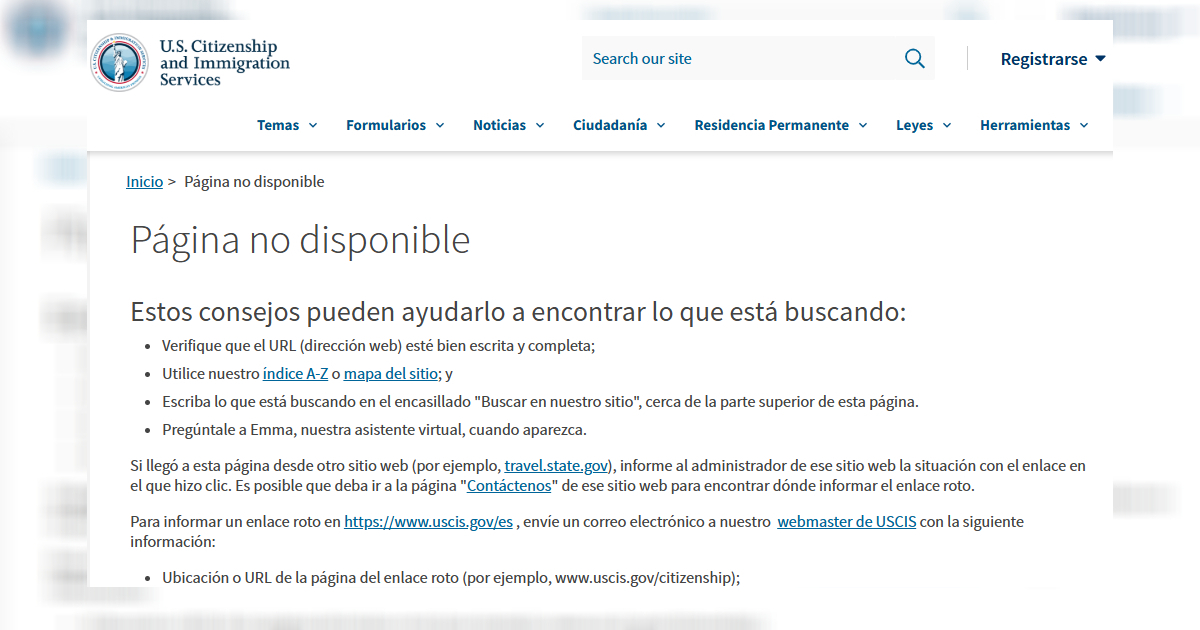The United States Citizenship and Immigration Services (USCIS) has taken down the official webpage that provided details on the Humanitarian Parole program for citizens of Venezuela, Haiti, Cuba, and Nicaragua, a program initially put in place by former President Joe Biden. The section, which outlined how migrants from these nations could benefit from the program, is no longer available online, as verified by our team.
Even though the page is removed, the previous information remains accessible for reference on the USCIS website, allowing users to review the content and understand the program's terms before its dissolution. This change on the website coincides with a series of actions initiated by the new U.S. President, Donald Trump, at the start of his second term.
Among the executive orders signed by Trump on Monday are significant decisions impacting migration and national security. Notably, these include the termination of the Humanitarian Parole program, which had served as a vital entry point for half a million migrants from specific countries under humanitarian conditions.
Trump's executive orders also reinstate controversial immigration policies, such as the implementation of the Migrant Protection Protocols (known as “Remain in Mexico”), the resumption of border wall construction, and the deployment of troops along the U.S.-Mexico border to enhance immigration control and combat drug trafficking.
Additionally, Trump declared a National Emergency, mobilizing the National Guard and the Department of Defense to secure the southern border. In terms of drug cartels, Trump has ordered that groups like Mara Salvatrucha (MS-13) and the Tren de Aragua be designated as terrorist organizations, enabling the U.S. government to impose economic sanctions and pursue harsher legal actions against them.
Trump's measures have sparked strong reactions both domestically and internationally. The Mexican government has rejected the reimplementation of the “Remain in Mexico” program, viewing it as a unilateral measure, though it remains open to negotiating specific agreements.
Moreover, the termination of the Humanitarian Parole and the disappearance of the CBP One app, which facilitated online asylum applications, have created uncertainty within migrant communities, particularly in Cuba, where the program was one of the few legal pathways to enter the United States.
With the elimination of the Humanitarian Parole and the introduction of harsher policies, the outlook for Cuban, Venezuelan, Haitian, and Nicaraguan migrants seeking to enter the U.S. is expected to become more challenging. The Trump administration has made it clear that it will adopt a tougher stance against irregular migration, potentially leading to mass detentions and deportations.
While these measures are applauded by those who support stricter immigration policies, they have faced severe criticism from human rights advocates, who warn of the adverse effects on migrant families and communities.
Impact of Policy Changes on Migrants
What changes did Trump's executive orders bring to immigration policies?
Trump's executive orders include the termination of the Humanitarian Parole program, reinstatement of the “Remain in Mexico” policy, resumption of border wall construction, and mobilization of troops to the southern border.
How does the removal of the Humanitarian Parole program affect migrants from Cuba, Venezuela, Haiti, and Nicaragua?
The removal of the Humanitarian Parole program complicates the legal entry of migrants from these countries, as it was a significant pathway under humanitarian conditions.
What was the impact of declaring drug cartels as terrorist organizations?
Designating drug cartels like MS-13 and Tren de Aragua as terrorist organizations allows for economic sanctions and more severe legal actions against them.
